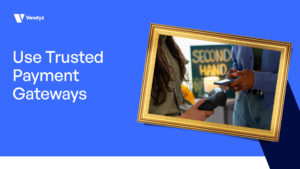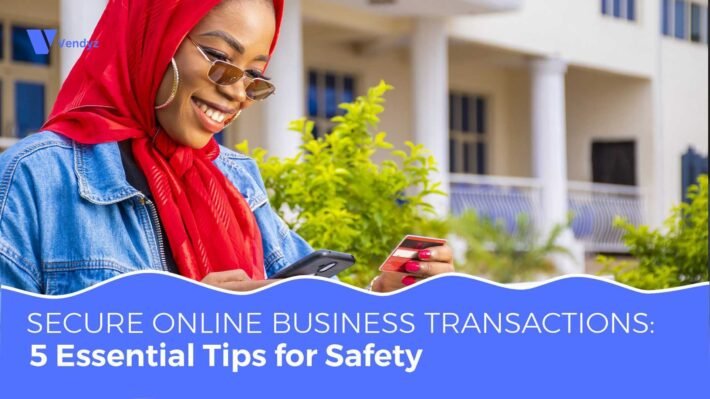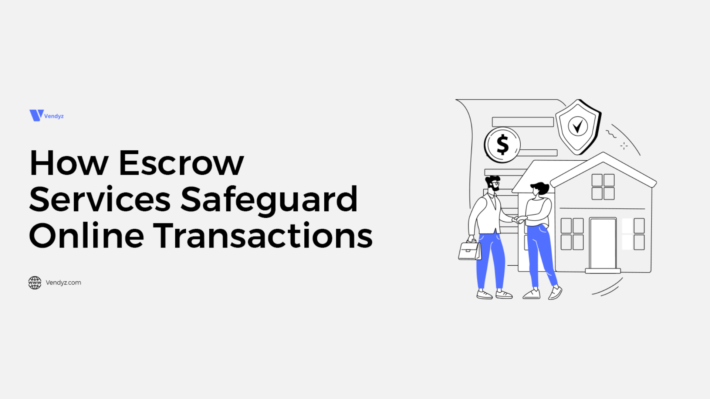10 Best Practices for Secure Online Payments: A Relatable Guide
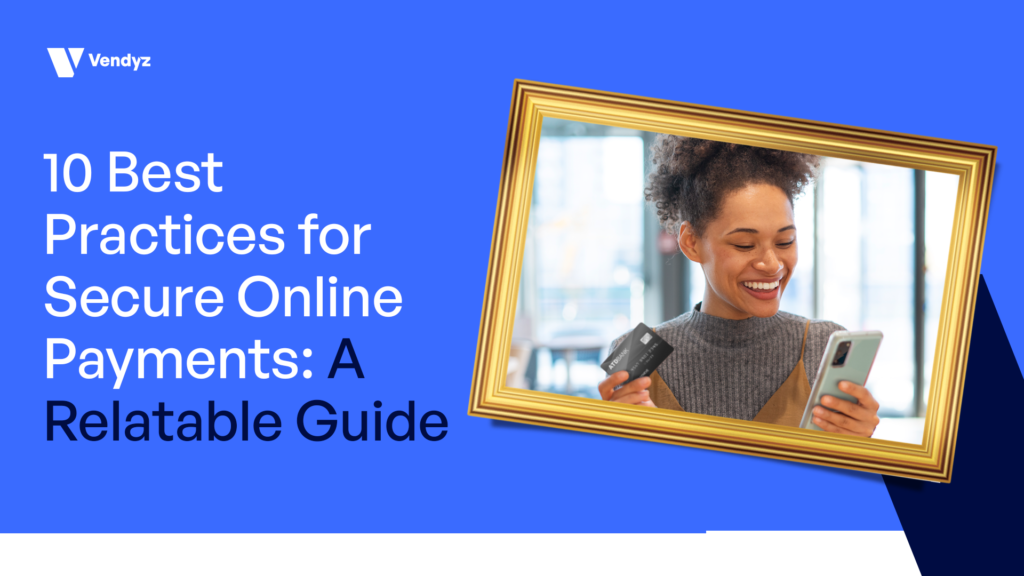
Secure online payments have revolutionized the way we shop, pay bills, and conduct business. With the convenience of making purchases directly from smartphones and computers, we’ve embraced a world where carrying cash or even physical credit cards seems like a thing of the past. However, the ease of online transactions comes with an inherent risk, cybercriminals have recognized these vulnerabilities, and they continue to target payment systems. Every year, billions of dollars are lost due to payment fraud, which is why understanding how to secure your online payments is vital.
In fact, according to a 2023 IBM report, the average cost of a data breach reached an eye-watering $4.45 million, which highlights the increasing threat to both consumers and businesses. Whether you’re an individual shopping online or a business processing payments, securing these transactions should be a top priority.
In this guide, we will explore 10 essential security practices designed to protect both individuals and businesses from fraud. These steps will not only help safeguard sensitive data but also ensure peace of mind when making or accepting payments online.
1. Use Trusted Payment Gateways
When making payments online, it’s essential to choose trusted and reputable payment gateways. Some of the most popular and secure payment platforms include kora, Stripe, Flutterwave, and Square. These services are designed to protect your payment details through encryption and other security measures. They also comply with industry standards like PCI DSS (Payment Card Industry Data Security Standard), which ensures that your information is kept secure during transactions.
How Encryption Protects You
Encryption works by converting sensitive data into an unreadable code that can only be decrypted by the intended recipient. Without encryption, hackers could intercept sensitive information like credit card numbers, CVV codes, and personal details. Payment gateways like PayPal and Stripe employ robust encryption protocols to ensure that your data is shielded from cybercriminals. For a deeper understanding of PCI DSS compliance and how it minimizes fraud risks, you can visit the official PCI Security Standards Council website.
Quick Tip: Before entering your payment information on any site, always look for the padlock symbol 🔒 and check if the URL begins with “https://”. This indicates that the website is secure.
2. Recognize and Avoid Phishing Scams

Phishing scams are one of the most common tactics used by cybercriminals to trick individuals into disclosing personal information. These scams often come in the form of fake emails, text messages, or websites that look legitimate but are designed to steal sensitive data.
In the 2023 Verizon Data Breach Investigations Report, it was revealed that 36% of all data breaches involved phishing attempts. This makes phishing one of the top threats to online payment security.
How to Spot Phishing Attempts:
- Generic Greetings: Phishing emails often begin with vague greetings like “Dear Customer” instead of addressing you by name.
- Urgency or Threats: Phishing messages might tell you that your account has been compromised or that action is required urgently (e.g., “Your account will be suspended unless you verify your details now!”).
- Suspicious Links: If the email contains a link, hover over it to see where it leads. Often, these links will direct you to fraudulent websites designed to capture your personal details.
What to Do:
Never click on links embedded in unsolicited emails. Instead, visit the official website by typing the URL manually into your browser. For more information on preventing phishing attacks, check out Kaspersky’s Guide on Phishing Prevention.
3. Create Strong, Unique Passwords
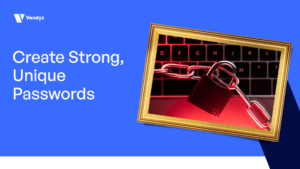
Creating strong, unique passwords is one of the most fundamental steps you can take to protect your online accounts. Weak passwords are an open invitation for hackers to gain unauthorized access to your accounts using brute-force methods.
Password Strength Matters:
- Weak Password Example: “123456” (Crack time: Instant)
- Strong Password Example: “LagosMarket$2025” (Crack time: 34,000 years)
To ensure your passwords are strong, follow these guidelines:
- Use a combination of uppercase letters, lowercase letters, numbers, and special characters.
- Avoid using easily guessable information, such as your name, birthdate, or simple phrases.
Using password managers like 1Password or Google Password Manager can help securely store and manage your credentials, so you don’t have to remember complex passwords for every account.
Pro Tip: Always enable Two-Factor Authentication (2FA) on your payment platforms to add an extra layer of protection. This requires you to verify your identity using a second method, such as a code sent to your phone.
4. Never Store Card Details on Websites

It might be tempting to save your card details on e-commerce websites for convenience, but this practice significantly increases the risk of fraud. A study conducted by NordVPN in 2024 found that 60% of users had at least one payment card stored across multiple online platforms. If any of these websites suffer a data breach, your financial information could be exposed.
Best Practices:
- Manually enter your card details for high-risk purchases or unfamiliar websites.
- Consider using virtual cards with spending limits, which are offered by several banks, including GTBank and Zenith Bank, to protect your financial information.
5. Opt for Escrow Services for High-Risk Transactions

For high-value transactions or purchases from less-known sellers, using an escrow service is a smart way to reduce risk. Escrow services hold funds in a secure account until both parties fulfill their obligations. For example, the buyer confirms receipt of goods before the payment is released to the seller.
Escrow services are particularly useful for online marketplaces, freelance contracts, or high-ticket items. Platforms like Vendyz, which specialize in secure transactions for African markets, reduce fraud by ensuring that sellers only receive payment once the buyer confirms delivery.
Check Out: If you’re unfamiliar with how escrow works, Vendyz’s Beginner’s Guide to Escrow offers a comprehensive breakdown of this useful service.
6. Keep Software and Devices Updated

Cybercriminals are constantly looking for vulnerabilities in software that they can exploit to access sensitive data. Regular software updates are essential as they often contain patches that fix security holes. When you neglect to update your operating system, browsers, or payment apps, you leave yourself open to attacks.
What Needs Updating:
- Operating Systems: Always keep your devices up-to-date with the latest security patches (iOS, Android, and Windows).
- Browsers: Update browsers like Chrome, Safari, and Firefox regularly to ensure they’re equipped with the latest security features.
- Payment Apps: Platforms like PayPal, Opay, and Flutterwave frequently release updates to address vulnerabilities, so keep them updated.
A prime example of the importance of updates is the 2023 MOVEit breach, where hackers exploited an unpatched vulnerability in outdated software. This breach could have been prevented had timely updates been applied.
7. Avoid Public Wi-Fi for Payments

Using public Wi-Fi to make payments is risky because these networks are often unencrypted. Hackers can intercept data sent over unsecured networks, making it easier for them to steal sensitive information.
A 2024 cybersecurity report revealed that 40% of public Wi-Fi users experienced data theft while connected to unsecured networks.
How to Stay Safe:
- Use Mobile Data: When making payments, avoid using public Wi-Fi. Instead, opt for your mobile data, which is more secure.
- Use a VPN: If you must use public Wi-Fi, consider using a VPN (Virtual Private Network) like NordVPN, which encrypts your internet connection, adding an extra layer of security.
8. Monitor Financial Accounts Weekly

Taking a proactive approach to monitoring your financial accounts can help you catch unauthorized transactions early. By regularly reviewing your bank and credit card statements, you can spot suspicious activity before it becomes a major problem.
What to Look For:
- Small Test Transactions: Hackers often initiate small charges (₦50–₦500) to test if a card is active.
- Unfamiliar Merchant Names: If you see charges from merchants you don’t recognize, investigate further.
Most banks and payment platforms allow you to set up SMS or email alerts for transactions above a certain threshold (e.g., ₦5,000). These alerts can help you stay on top of your spending and detect fraud quickly.
For more fraud prevention tips, visit the Vendyz Blog, which regularly provides insights into securing online payments.
9. Vet Sellers Thoroughly Before Buying

The rise of online marketplaces has made it easier for scammers to set up fake accounts and sell fraudulent goods. Before making a purchase, take the time to research and vet the seller thoroughly.
How to Identify Trustworthy Sellers:
- Positive Reviews: Look for sellers with a significant number of recent positive reviews (at least 15).
- Active Social Media Presence: Legitimate sellers often maintain an active presence on social media, where you can verify their legitimacy.
- Verified Status: On platforms like Amazon, Jumia, or Vendyz, look for the seller’s verified status, which indicates they have undergone additional checks for authenticity. Institutions such as Vendyz also provide WhatsApp communities to find verified buyers for any product or service.
Many scammers create fake profiles using stolen images or stolen product descriptions, so be cautious of unfamiliar sellers without adequate verification.
10. Understand Refund and Dispute Policies

Understanding the terms and conditions of refunds and disputes is crucial before making a purchase. This knowledge will protect you if the item is damaged, delayed, or not delivered.
Things to Review:
- Return Windows: Check the seller’s return policy. Reputable sellers typically offer at least a 7-day return window.
- Refund Methods: Understand whether refunds will be issued back to your payment card or as store credits or wallet balances.
- Escrow Release Terms: If you’re using an escrow service, check the release terms. Many platforms allow you to inspect goods for a specific period (e.g., 48 hours) before the payment is finalized.
Emerging Technologies Enhancing Payment Security
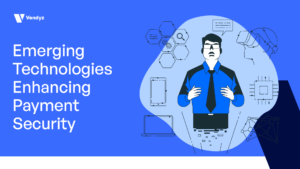
- AI Fraud Detection
Artificial intelligence (AI) is being increasingly used to analyze transaction patterns, such as typing speed and geolocation, to detect unusual or suspicious activity in real-time.
- Biometric Authentication
More payment platforms are using biometric authentication (fingerprint or facial recognition) to replace traditional passwords, offering more secure and convenient ways to verify identity.
- Tokenization
Tokenization replaces sensitive card information with unique identifiers (tokens) that can’t be reverse-engineered. This means that even if hackers gain access to the tokenized data, they can’t use it to make unauthorized payments.
Why Escrow Is Transforming African E-Commerce
 Escrow services are becoming increasingly important in African e-commerce markets. These services ensure that funds are only released to the seller once the buyer confirms they’ve received the goods as expected. For example, platforms like Vendyz have tailored their escrow solutions to meet the needs of local sellers, including WhatsApp-based sellers and freelancers.
Escrow services are becoming increasingly important in African e-commerce markets. These services ensure that funds are only released to the seller once the buyer confirms they’ve received the goods as expected. For example, platforms like Vendyz have tailored their escrow solutions to meet the needs of local sellers, including WhatsApp-based sellers and freelancers.
Escrow eliminates the risk of chargebacks and ensures that both buyers and sellers are protected in every transaction.
Final Security Checklist
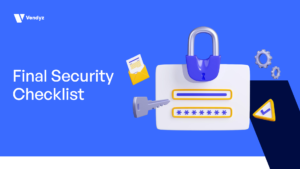
Fake Websites: Always look for the 🔒 icon + HTTPS before entering payment details.
Weak Passwords: Use a password manager to create and store strong, unique passwords.
Phishing Attacks: Verify messages via official channels and avoid clicking on suspicious links.
High-Risk Purchases: Always use escrow services for high-value transactions.
Want to Learn More?
By following these practices and embracing the emerging technologies that enhance security, you can enjoy the convenience of online payments without compromising your personal or business security. Stay informed, stay vigilant, and continue shopping with confidence!
